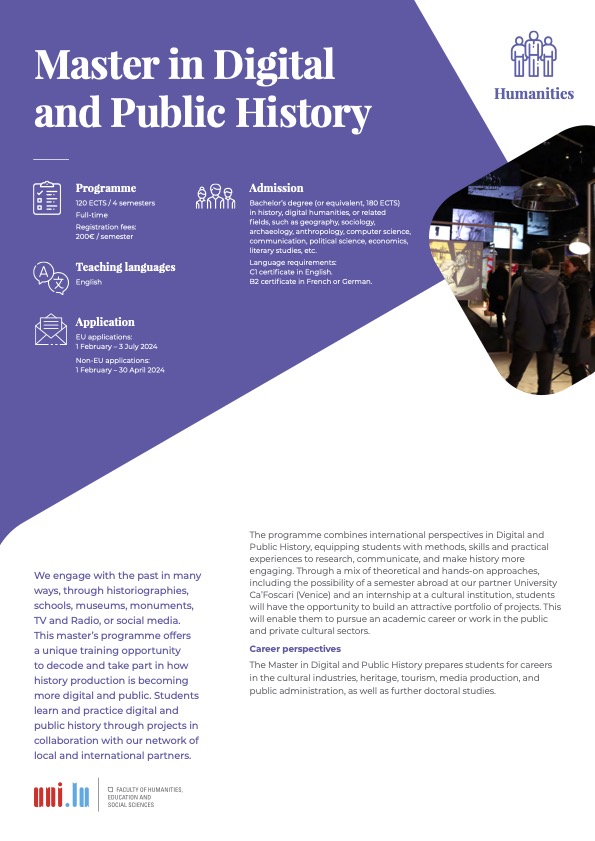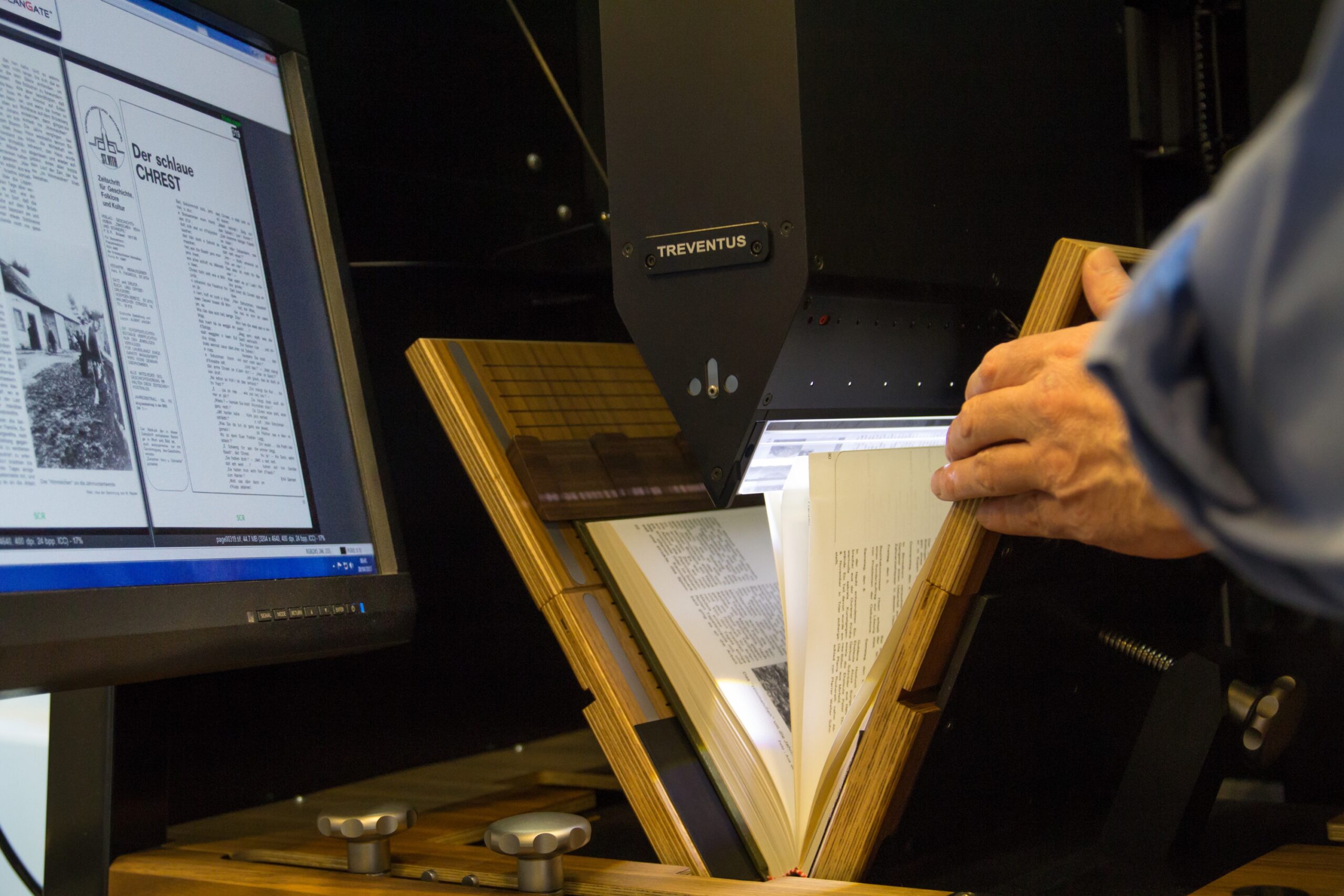Career opportunities
The programme offers diverse career opportunities beyond traditional academia. By combining training in theoretical frameworks with unique hands-on skills, it prepares students for careers in the GLAM industries, cultural heritage, tourism, media production, and public administration. While focused on non-academic careers, it also provides strong research training for doctoral studies in Digital and Public History.
More info
Download the flyer

Learning Outcomes
Cultivating Digital Public History: Mastering Theories, Tools, and Collaborative Networks for a Connected World
Academic and Analytical Skills
- Master current theories in Digital and Public History and understand the latest theoretical frameworks.
- Critically analyse primary source collections: develop the ability to identify biases, perspectives, and historical contexts.
- Master diverse tools for analysing historical data: become proficient in using various technological tools and methodologies for historical data analysis.
- Reflect on the impact of public engagement and digital media and on how they shape the humanities and historical discourse.
Collaborative and Communicative Skills
- Communicate historical research effectively to diverse audiences.
- Develop scientific collaborations beyond the University with professionals and academics in various fields.
- Understand and implement ethical practices in Public History, emphasising community involvement.
- Build international networks with cultural institutions, historians, and professionals for cultural exchange and collaboration.
- Develop cross-cultural and transferable skills applicable across different cultures and disciplines.
